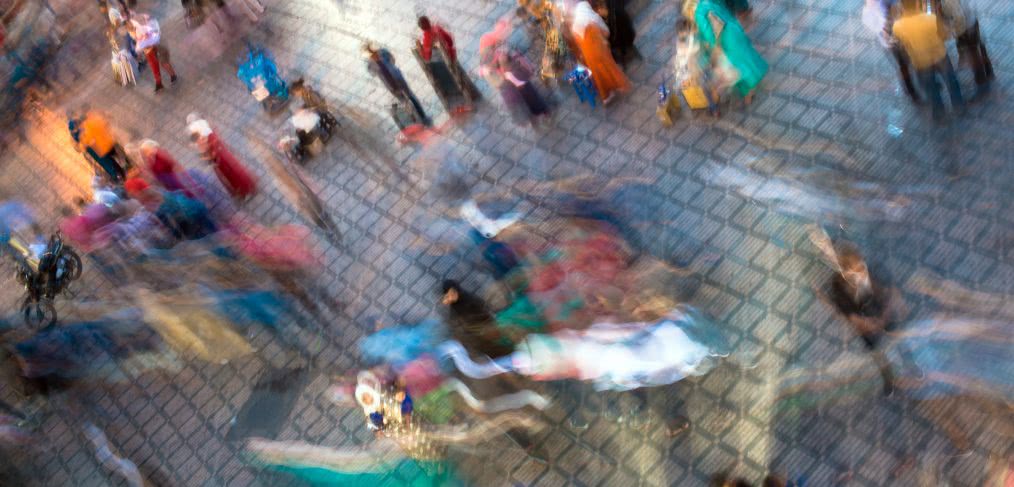
Gen M: Modern, Millennial Muslims
In 30 years, more than a quarter of the world’s population will be Muslim. This overwhelmingly young, tech-savvy demographic has been largely untapped by mainstream companies in the US and Europe, but that’s all about to change. Muslims used to adapt existing products and brands to suit them, but armed with an entrepreneurial spirit and big ideas, they’re increasingly going into business for themselves and revolutionizing entire market sectors in the process.
Let’s put some context around these trends: According to the State of the Global Islamic Economy Report, the halal food and lifestyle industry will be worth $2.6 trillion by 2020. Islamic finance will perform similarly and Muslim travel is projected to be worth $233 billion. As far as more tangible goods go, Muslim fashion was valued at $230 billion and $54 billion was spent on Muslim cosmetics in 2014.
Although these figures speak for themselves to some extent, this is much more than just a numbers game; faith is an essential component to this movement. Two-thirds of Muslims around the world are under 30 and more than 90% say their religion affects what they buy and consume in some way (Source: Ogilvy Noor). According to Shelina Janmohamed, author of Generation M: Young Muslims Changing the World, this demographic segment wants to surpass halal and focus on tayyab, translated as “ethical and wholesome.” Like their Millennial counterparts in the United States, there is a push for transparency and integrity in production and consumption, respect for resources and workers, and sustainability is paramount as part of the Islamic principle of “stewardship of the Earth.” Brands that simply pay lip service to “being green” or creating a better world will be rejected in favor of companies that actually come through on their promises.
A New Retail Paradigm
So what does this all mean for retail and brands around the world and particularly in predominantly Muslim countries? It means a big shift in everything from design and operations to tenants and customer experience.
Going back a few decades, the traditional shopping mall, with a simple, dumbbell layout and an anchor on each end, was born in the United States. Food tended to stay on the cheap, easy side of the spectrum and the same or similar stores could be found at almost any mall in the country. All that has changed. The traditional American mall is dying a slow death and the best shopping centers are reinventing themselves as hubs for social gathering, incubators for new dining concepts and intersections on the quest for authenticity. In the last few years, this shift has gone global.
Nowhere is this more apparent than in my adopted hometown of Dubai, where we’re lucky enough to have the biggest malls in the world, chock full of different brands, dining options and activities. I predict that this model will thrive in other parts of the world. And inclusivity will be part of everything we do.
Dial M for Modest, Modern Millennials
I can’t overstate it: Muslim women are the largest untapped market in the world. They are the ones leading the charge for faith-friendly products and brands and they’re just getting started.
In the UAE in particular, the shopping and spending culture is part of daily life; a survey by Emirates Business showed that Emirati women spend nearly 60% of their incomes on general shopping and 43% of that is on fashion.
Modest swimsuits and athletic wear that go the distance, popular Instagram accounts that are all about the Haute Hijab, and halal beauty lines that are soaking up major market share with Muslims and non-Muslims alike are just a few of the visible points of light that are about to turn into a sunbeam. These are not niche products either; they’re going mainstream. Huda Kattan, is the highest Instagram influencer in the UAE with 20.8 million subscribers who follow her brand of Halal makeup. The halal classification has a lot of crossover appeal for vegan and eco-friendly consumers because they omit animal products (many cosmetics use animal fats for consistency, for example), offering a major opportunity for brand engagement with consumers from different walks of life.
On the high-tech side, there’s an app for everything, including supporting your faith. There are prayer reminder and sun orientation apps, apps that give halal dining recommendations almost anywhere in the world, and apps that help you find mosques and Islamic heritage sites close by. Social media platforms are connecting Gen M like never before, and they’re sharing fashion, beauty and lifestyle advice that doesn’t conflict with their faith.
Startup Culture
Rather than wait for brands to see the potential in their market, 20 and 30-something Muslims are taking the reins and starting their own businesses that marry their faith with a modern lifestyle, particularly in the Middle East. The region’s entrepreneurs are the youngest in the world, with an average age of 26, and the greatest number of Middle Eastern entrepreneurs decided to go down that path while they were still in school, higher than any other region (Source: HSBC).
These startups aren’t about doing business as usual. Not only are they halal, but many of them have a philanthropic mission and a drive to make the world a better place. From apps to fashion, this generation isn’t content to do things the same way their parents and grandparents did—they’re finding their own path and breaking new ground.
A popular example in the UAE is the SALT girls, two Emirati women who jumpstarted the UAE’s food truck culture. They also created a social media frenzy with a campaign for ‘By Parkers,’ a pop-up food concept that drops hints about where to find entry keys.
The Design Question
We have a lot of stats, a few trends and we have a good idea of what Gen M is looking for, but what does it mean for architects and designers? A few things:
- The typical retail consumer isn’t changing; she has changed. Designers and architects have to remember who our clients’ clients are and support their needs in the Middle East and everywhere we work. Things like including more space for prayer rooms and including Gen M-owned brands in tenant/leasing strategies should be part of every design process, everywhere in the world.
- Sustainability is more important than ever. It’s not enough to say you’re green. Every building should be eco-friendly and transparent about energy-saving metrics.
- For brands, inclusivity is a core belief for millennials everywhere, whether they’re religious or not. Offering stylish modest options, halal products and production line transparency isn’t just good for business; it’s the right thing to do.
